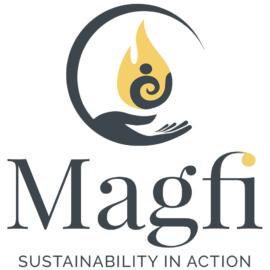Net Zero Food System
We will enable the transition to a net zero food system, measuring and quantifying the change through reduced CO2 equivalent emissions.

The food system is responsible for almost a third of greenhouse gas emissions, with connected challenges such as food waste, resource depletion and energy consumption. To reach net zero and mitigate the impacts of the climate crisis, we must scale a systems approach to change that enables the transition to sustainable and regenerative agriculture practices, creates new markets and opportunities for food waste and loss reduction, and empowers all stakeholders to play an active role in the circular food economy.
Want to learn more about the opportunities to achieve a net zero food system?
project
Enabling more effective and efficient weed control

ONCOFOOD: New food solutions for cancer patients
2020 > 2022
project
Preventing malnutrition in patients undergoing treatment for cancer

project
The “EIT Food School Network” third year activities are focused on the organisation of four stakeholder workshops (school staff, key organisations involved in regulating schools, academics and policy makers). Due to the current…
project
TRACOD – short for TRAck the COD fish, is an EIT Food project aimed at improving the ability of producers and consumers to track freshness and nutritional values of fresh fish, including cod, salmon, and other white fish species. TRACOD…
Latest related news
Looking for more content related to Net Zero Food System?
Related start-ups in our network
project
Developing technology to improve food safety
project
Improving traceability of fish and olive oil
project
Creative infotaining is the future of knowledge transfer and co-creation among young generations.
project
Consider ways arable farmers in the EU can use agri-tech to benefit business
project
The European Food Systems Education and Training (EFSET) programme addresses the increasingly challenging array of food-related problems, such as food waste or malnutrition.

project
Using innovative technology to develop a healthy sugar substitute

project
Creating an innovative food antioxidant from Olive oil by-products

EIT Food Digital Marketplace for Side Streams
2019 > 2020
project
A substantial part of the food industries' produce ends up to now as waste.
Related partners
Agri-EPI Centre
United Kingdom

Magfi
Malta

Scottish Association for Marine Science (SAMS)
United Kingdom

Milcoop
Italy

Aarhus University
Denmark
project
Enabling more effective and efficient weed control

ONCOFOOD: New food solutions for cancer patients
2020 > 2022
project
Preventing malnutrition in patients undergoing treatment for cancer

project
The “EIT Food School Network” third year activities are focused on the organisation of four stakeholder workshops (school staff, key organisations involved in regulating schools, academics and policy makers). Due to the current…
project
TRACOD – short for TRAck the COD fish, is an EIT Food project aimed at improving the ability of producers and consumers to track freshness and nutritional values of fresh fish, including cod, salmon, and other white fish species. TRACOD…
project
Developing technology to improve food safety
project
Improving traceability of fish and olive oil
project
Creative infotaining is the future of knowledge transfer and co-creation among young generations.
project
Consider ways arable farmers in the EU can use agri-tech to benefit business
project
The European Food Systems Education and Training (EFSET) programme addresses the increasingly challenging array of food-related problems, such as food waste or malnutrition.

project
Using innovative technology to develop a healthy sugar substitute

project
Creating an innovative food antioxidant from Olive oil by-products

EIT Food Digital Marketplace for Side Streams
2019 > 2020
project
A substantial part of the food industries' produce ends up to now as waste.


Loading more content...











